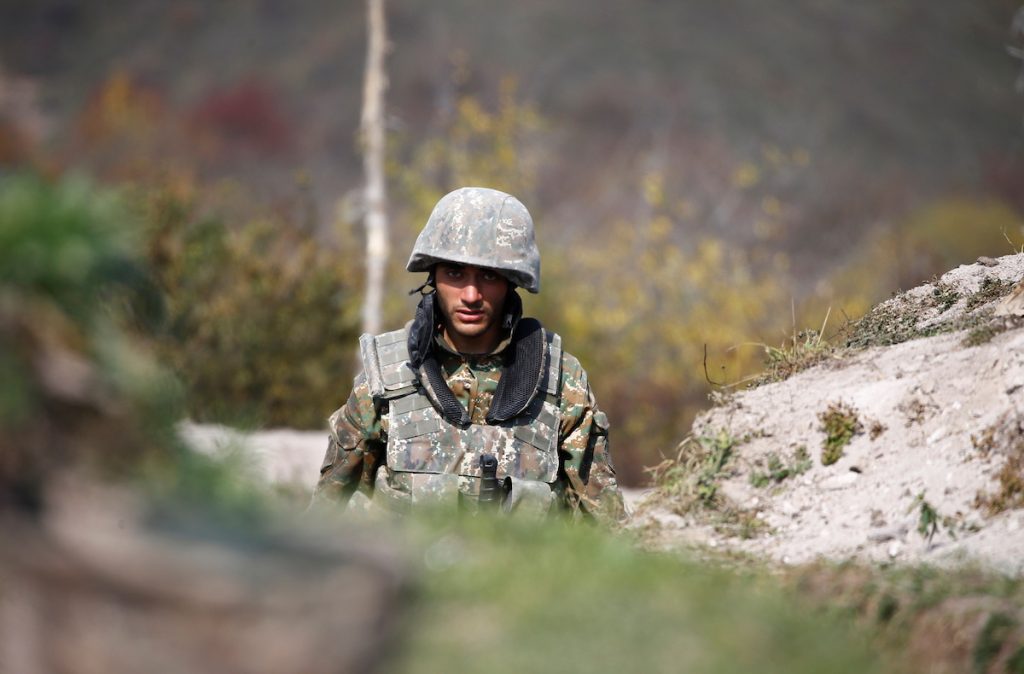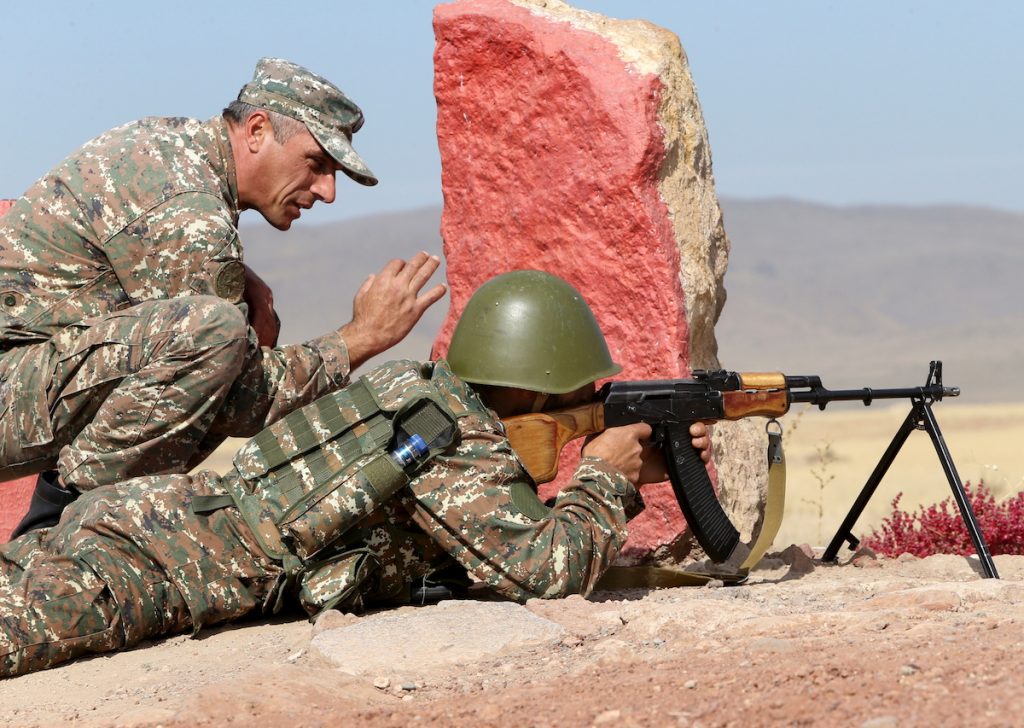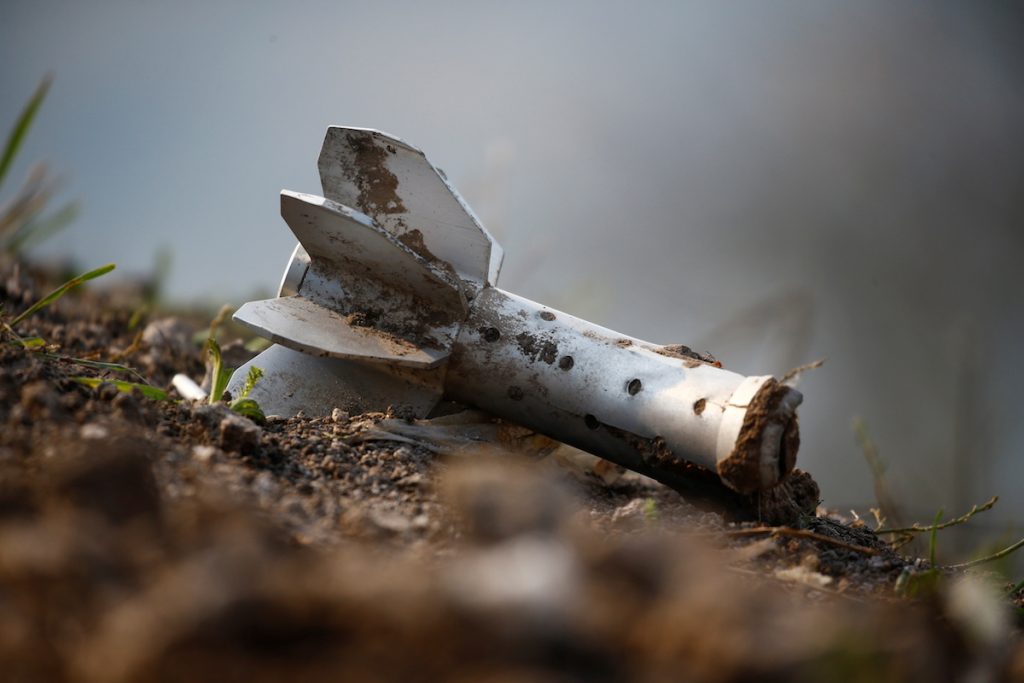Military experts on Karabakh – turning points, preparedness and drones
What predetermined the outcome of the war in Nagorno-Karabakh – the effectiveness of the Turkish army? Or the astonishing carelessness of the Armenian one? Military experts share their views with the BBC Russian Service.
What was the turning point
Hadrut was the first regional center in Nagorno-Karabakh on the way of the Azerbaijani military and the first city where civilians chose to remain.
The fall of Hadrut changed the situation significantly – the Azerbaijani troops began to advance more intensively, while the Armenians began to retreat.
“The first catastrophe was that for some reason Hadrut was left without serious resistance forces, and this predetermined everything else,” said an Armenian military specialist, who chose to remain anonymous.
Karabakh: the battle for Hadrut and why it’s important
Journalist and former head of Public Radio of Armenia Mark Grigoryan attributes the outcome of the war to the fall of the city of Shusha/Shushi.
“Shushi is the key to the whole Karabakh. This is the center which controls Stepanakert [the capital of Nagorno-Karabakh]. This was true during the first war, and this remains to be the case. However, the level of armaments was completely different back then,” Grigoryan said.

How the sides prepared for war
“Azerbaijan’s expenditures on armaments were more substantial, their planning was more thorough. The authorities did not scatter money, instead carefully considering all the latest trends in military affairs; they purchased what they needed, having studied the war experience in the Middle East. Theit preparation for the current conflict was exemplary, and this applies not only to the purely military aspects, but also to the politics, economics and propaganda,” said Russian military expert Vasily Kashin.
Since the mid-2010s, Armenia has also increased expenditure on weapons.
‘We got the most we possibly could’ – comments from Baku politicians, observers
Some purchases, however, caused confusion and even criticism in Armenia. For instance, many consider it senseless to buy four Russian Su-30SM fighters in 2019. These aircraft, faster and more powerful than the Azerbaijani MiG-29s, turned out to be too expensive, and their combat effectiveness was excessive for the Karabakh theater of military operations.
Another purchase which sparked a scandal in Armenia was the delivery of Osa AK anti-aircraft missile systems from Jordan. Experts questioned the motivation behind purchasing fairly old complexes from third countries when Armenia could directly purchase similar modern weapons from Russia.

Drones played a crucial role
In case of Karabakh, with Armenia backing it up, it would hardly have been possible to create a developed air defense system, said Mikhail Khodarenok, an air defense expert.
Turkish armed drones in Karabakh – more than a new weapon in the fight
The existing air defense system in Nagorno-Karabakh was focused on combating attack helicopters and aircraft, and small drones in the sky caught it off guard, the expert says.
Effectiveness akin to the Turkish style
The Azerbaijani army acted cautiously, relying on thorough reconnaissance, long-range fire damage and drone strikes, said Viktor Murakhovsky, editor-in-chief of the Russian magazine Arsenal of the Fatherland:
“Here we have not witnessed an offensive steam roller with artillery, barrage, tanks and so on.”
Murakhovsky noted likened the actions of the Azerbaijani Armed Forces to the style of the Turkish army, which used the same tactics in 2018 in the Syrian city of Afrin and the province of Idlib, where the Turkish military conducted the successful Olive Branch operation.

The flaws of the Armenian defense have long been noticeable
“The Armenian side clearly did not show a serious attitude to the preparation of defense, long-term fortification, camouflage, reconnaissance. Moreover, all these shortcomings in Armenian planning were noticeable even during previous outbreaks of conflict with Azerbaijan, starting in 2016, but Armenia did not draw any conclusions,” Vasily Kashin said.
“One side took decades to prepare very well, while the other side was weaker and barely prepared,” the expert concluded.


















